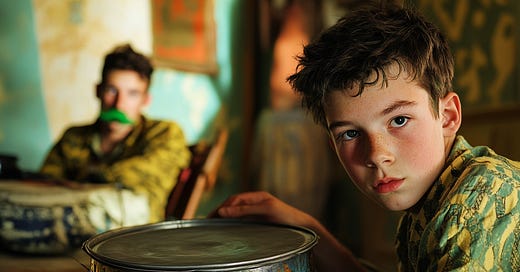Dyslexia: Interview with Oscar – I Am Trying, I’m Not Stupid, Be Patient
Early Diagnosis and Lifelong Learning: Insights from Oscar’s Journey with Dyslexia
Meeting Oscar was like stepping into the heart of a fighter. His dyslexia diagnosis helped him manage his condition and complete college. Despite ongoing struggles, Oscar remains determined to put in the work and figure it out.
Oscar’s dyslexia journey began in school, where a perceptive teacher noticed his struggles with reading and writing despite excelling in subjects like science and geography. At 14, a formal diagnosis confirmed what had been a lingering question for years. Reflecting on that moment, Oscar shared, “It answered questions on why I struggled so much with some things but excelled at others. It gave me a sense of relief that I wasn’t being lazy or a failure.” The diagnosis was a pivotal moment, bringing clarity and a sense of validation. Yet, it also marked the beginning of a lifelong struggle.
Growing up, Oscar faced significant challenges. Negative attention from teachers and peers left scars that still influence his life. “I put up a wall, which led to me not really asking for help, I felt unwelcome and unwanted,” he recounted. This defensive mechanism, while understandable, isolated him further in his struggles. Support came in the form of accommodations during exams in high school and university, but it wasn’t enough. “In uni, there wasn’t really the help I needed,” he said. The lack of adequate support continued to impact his professional life, especially in areas requiring strong writing and formatting skills. Oscar’s family had a mixed reaction. They knew something was wrong but didn’t fully grasp the reality of dyslexia. This lack of understanding only added to his burden.
Oscar’s experience in the workplace has been challenging. “It has still created great difficulty at my jobs as I struggle with formatting and grammar. For example I write reports but the reviewers state the sentences appear incomplete or are outright unreadable,” he admitted. Interestingly, Oscar acknowledged some strengths associated with his dyslexia. His ability to visualize concepts and his excellent memory are assets he leverages, even if the benefits sometimes seem overshadowed by the difficulties.
Oscar’s advice to others newly diagnosed with dyslexia is straightforward yet profound: “Ask for help and see what coping mechanisms people use.” This plea for understanding and patience is echoed in his message to those without dyslexia: “I am trying, I’m not stupid, be patient.” Despite the hardships, Oscar remains hopeful and determined. Therapy has become a crucial part of his journey, helping him address long-standing self-doubt and teaching him to seek the help he needs.
Oscar’s story is far from over. His move from Northern Ireland to America marked a new chapter, bringing with it renewed challenges but also opportunities for growth. Dyslexia continues to make aspects of life hard, but Oscar’s determination to “keep going till I figure out how to best handle it and work with it” is a powerful reminder of the human spirit’s resilience.
Oscar’s journey with dyslexia is a poignant illustration of the struggles many face but also a beacon of hope and persistence. His story encourages us to foster understanding, patience, and support for those navigating similar paths.
**************************
Consecutive Days Posting on Walter’s Diary:
Thirty-two (32)






My oldest is dyslexic and finishing her last year of university. A great teacher caught what I was burning money on tutors trying to assist.
Henry Winkler (The Fonze!) came up with a great readable font. He is also dyslexic. 💕